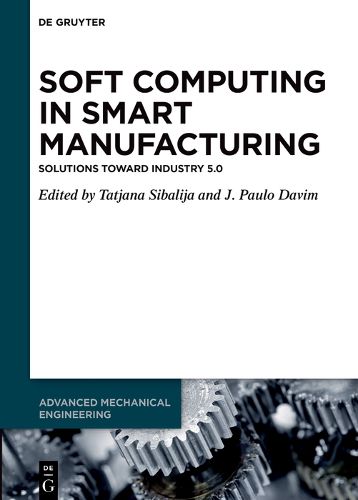Readings Newsletter
Become a Readings Member to make your shopping experience even easier.
Sign in or sign up for free!
You’re not far away from qualifying for FREE standard shipping within Australia
You’ve qualified for FREE standard shipping within Australia
The cart is loading…






This title is printed to order. This book may have been self-published. If so, we cannot guarantee the quality of the content. In the main most books will have gone through the editing process however some may not. We therefore suggest that you be aware of this before ordering this book. If in doubt check either the author or publisher’s details as we are unable to accept any returns unless they are faulty. Please contact us if you have any questions.
This book aims at addressing the challenges of contemporary manufacturing in Industry 4.0 environment and future manufacturing (aka Industry 5.0), by implementing soft computing as one of the major sub-fields of artificial intelligence. It contributes to development and application of the soft computing systems, including links to hardware, software and enterprise systems, in resolving modern manufacturing issues in complex, highly dynamic and globalized industrial circumstances. It embraces heterogeneous complementary aspects, such as control, monitoring and modeling of different manufacturing tasks, including intelligent robotic systems and processes, addressed by various machine learning and fuzzy techniques; modeling and parametric optimization of advanced conventional and non-conventional, eco-friendly manufacturing processes by using machine learning and evolutionary computing techniques; cybersecurity framework for Internet of Things-based systems addressing trustworthiness and resilience in machine-to-machine and human-machine collaboration; static and dynamic digital twins integration and synchronization in a smart factory environment; STEP-NC technology for a smart machine vision system, and integration of Open CNC with Service-Oriented Architecture for STEP-NC monitoring system in a smart manufacturing.
Areas of interest include but are not limited to applications of soft computing to address the following:
dynamic process/system modeling and simulation,
dynamic process/system parametric optimization,
dynamic planning and scheduling,
smart, predictive maintenance,
intelligent and autonomous systems,
improved machine cognition,
effective digital twins integration,
human-machine collaboration, robots, and cobots.
$9.00 standard shipping within Australia
FREE standard shipping within Australia for orders over $100.00
Express & International shipping calculated at checkout
This title is printed to order. This book may have been self-published. If so, we cannot guarantee the quality of the content. In the main most books will have gone through the editing process however some may not. We therefore suggest that you be aware of this before ordering this book. If in doubt check either the author or publisher’s details as we are unable to accept any returns unless they are faulty. Please contact us if you have any questions.
This book aims at addressing the challenges of contemporary manufacturing in Industry 4.0 environment and future manufacturing (aka Industry 5.0), by implementing soft computing as one of the major sub-fields of artificial intelligence. It contributes to development and application of the soft computing systems, including links to hardware, software and enterprise systems, in resolving modern manufacturing issues in complex, highly dynamic and globalized industrial circumstances. It embraces heterogeneous complementary aspects, such as control, monitoring and modeling of different manufacturing tasks, including intelligent robotic systems and processes, addressed by various machine learning and fuzzy techniques; modeling and parametric optimization of advanced conventional and non-conventional, eco-friendly manufacturing processes by using machine learning and evolutionary computing techniques; cybersecurity framework for Internet of Things-based systems addressing trustworthiness and resilience in machine-to-machine and human-machine collaboration; static and dynamic digital twins integration and synchronization in a smart factory environment; STEP-NC technology for a smart machine vision system, and integration of Open CNC with Service-Oriented Architecture for STEP-NC monitoring system in a smart manufacturing.
Areas of interest include but are not limited to applications of soft computing to address the following:
dynamic process/system modeling and simulation,
dynamic process/system parametric optimization,
dynamic planning and scheduling,
smart, predictive maintenance,
intelligent and autonomous systems,
improved machine cognition,
effective digital twins integration,
human-machine collaboration, robots, and cobots.